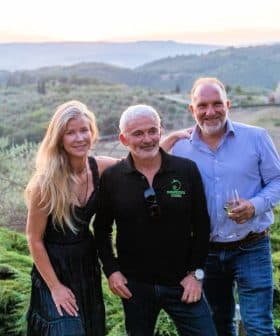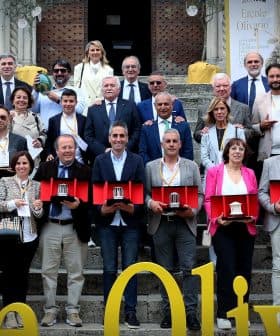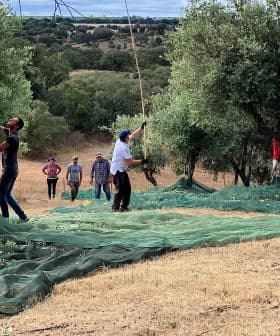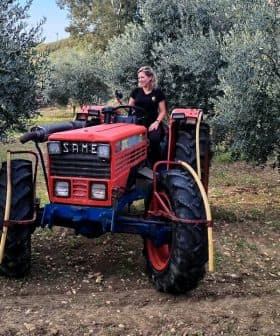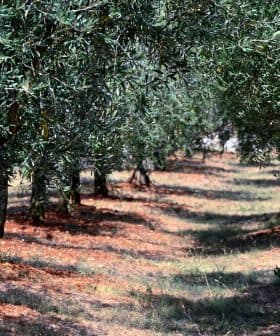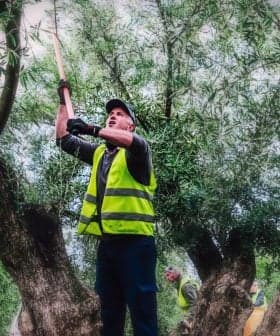Food Industry Pros Attend Napa Valley Seminar on Olive Oil Quality
The article discusses the Olive Oil Flavor and Quality Seminar held at the Culinary Institute of America, where Vice President Greg Drescher emphasized the need for the olive oil industry to break away from old paradigms and focus on quality. The event featured presentations and discussions aimed at professionals in the food industry supply chain, with a focus on improving olive oil quality testing methods and educating buyers to make more informed decisions to ultimately provide better options for consumers.
Culinary Institute of America Vice President Greg Drescher opened the Olive Oil Flavor and Quality Seminar in St. Helena Thursday by saying olive oil was poised for the greatness achieved by other foods like coffee, premium cheeses and chocolate, but would first need to break away from old ways of thinking.
“Many other food products, even in these difficult economic times, are operating in a space that rewards and promotes quality, innovation and upward pricing strategies,” Drescher said before a sold-out amphitheatre of 150 food industry professionals at the CIA’s stunning Napa Valley campus.
“Olive oil wants to follow this same growth curve in quality, but as we will learn today, sometimes forward progress is undermined by tired, old paradigms of doing business.”
“I am firmly convinced, however, that olive oil is poised for a new chapter,” he added, “one that will captivate the imagination of chefs, retailers and consumers alike; a new story about incredible flavors hidden in plain view.”
Drescher’s statement set the tone for a fast-paced day of presentations and discussion that was perhaps less unique for its messages than for its audience.
Jointly produced by the Culinary Institute and the UC Davis Olive Center, the conference lineup featured the regular cast from the Association 3E Beyond Extra Virgin conferences — the olive oil quality think tank that includes Drescher, Dan Flynn, Claudio Peri, Aris Kefalogiannis, Paolo Pasquali, Rosa Vañó, Paul Bartolotta, Alexandra Devarenne, Tom Mueller and others.
But while last summer’s BEV conference in Córdoba played to an audience of mostly producers, politicians and journalists, this week’s show was directed to a group of professionals further down the supply chain who make olive oil buying decisions for retailers and food service industries.
Unable to resist such a rare opportunity to address the people who stand between them and consumers who only know the taste of bad olive oil, some presenters made their points in the form of a harsh scolding.
In years of facing buyers throughout the world for Australia’s Cobram Estate, Ashley Read caused at least a few uncomfortable shifts in the audience when he recalled “just two who actually opened the bottle and tasted the oil inside,” and suggesting it was time for buyers to “get serious about what the olive oil is and what you want your customers consuming.”
Read’s frustration is understandable. Cobram Estate is heralded as one of the world’s most efficient and well-run olive oil producers. Yet facing competition from subsidized, lower quality and often mislabeled imports, the leading Australian olive oil company is fighting for its life. The second-biggest producer, Kailis Organic, declared bankruptcy in November.
A number of presenters again made the case for the use of newer olive oil quality testing methods known as PPP and DAG, which have been shown to do a better job identifying olive oils that don’t deserve the extra virgin grade. Australian Paul Miller, who has been spending the last few months meeting with New World producer associations to form what he calls a “Global Quality Alliance,” told the audience “If your suppliers know you will periodically take the product off the shelf and test it, they will lift their game.”
The program wasn’t all about good versus evil. Culinary Institute instructor Bill Briwa and award-winning chef Paul Bartolotta teamed up for culinary demonstrations that were captivating, and yet somehow kept within the day’s rigidly-timed schedule. Between sessions, attendees were treated to the same dishes, prepared in the Culinary Institute kitchens by an army of paring knife-wielding protégés.
There was also guidance for olive oil retailers in a rapid-fire presentation by Liz Tagami, who offered demographic support for why olive oil deseved their closest attention, followed by practical merchandising suggestions.
And there was plenty of olive oil tasting, guided by such noted experts as Paul Vossen, Alexandra Devarenne and Nancy Harmon Jenkins. Twenty-one oils were tasted throughout the day ranging from the same supermarket brands implicated in the now-famous UC Davis tests, to fresh juice from Tuscany, Greece and local Napa Valley mills. The experience left a bad taste with the audience though, since the last oil tasted was one of those meant to illustrate rancidity. Ending on a bad note surprised more than a few, who were left longing for one more palate-cleansing apple slice.
There was also the notable participation by the North American Olive Oil Association’s chairman, John Sessler, who spoke about his organization’s quality initiatives and testing programs — statements that drew rolling eyes and a few audible snickers from some of the home-field California producers. But privately some participants saw the presence of the NAOOA and other importers as a positive step toward opening a meaningful dialogue about olive oil quality with those responsible for the lion’s share of what’s on store shelves.
Most would agree the seminar achieved its objectives, which Olive Center Director Flynn said were to demystify olive oil, help buyers make more informed decisions and foster quality. Attendees said they left the conference with a stronger appreciation for olive oil quality issues — a better understanding, organizers hope, that will lead to better olive oil options for consumers.



